Who doesn’t know about web browsers in this advanced modern technology? I know all of you are aware of it, but let me inform you briefly about that. Here, we are going to focus on a list of the Best Ubuntu web browsers that let you choose the fastest and lightest one for the Ubuntu system.
Generally, web browsers allow you to access a wide range of information by accessing the Internet. As there is plenty of browsing software available for Linux, it will definitely be difficult to choose the best one for your Ubuntu system.
To make your task easier, we have narrowed down the list of it. In this article, we will describe the best 15 Ubuntu web browsers for comfortably surfing the web. Let’s have a close look at it.
Best Web Browsers for Ubuntu Linux
Here, I will discuss a well-researched and comprehensive list of Ubuntu Linux web browsers that may appear interesting to you. This Ubuntu Web Browsers list is not in any specific order. This article definitely helps you to get to know about various web browsers that are available for Ubuntu Linux.
1. Chromium or Google Chrome
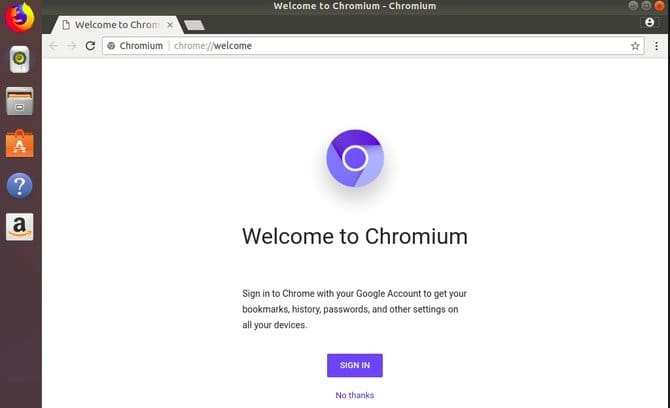
Chromium is a widely used web browser application that you have ever used. It has fantastic features such as a tabbed window, Theora, and different WebM codes for the latest audio and video of HTML5, including useful bookmarks.
Google Chrome is also a popular Ubuntu browser that supports both in PC and smartphones. It has nice features, such as wonderful bookmarking and synchronization. Basically, Google Chrome is a closed-source web browser based on open source Chromium, which is also backed by Google Inc.

Both Chromium and Google Chrome browsers come with malware blocking that ultimately ensures personal information security. Moreover, there are lots of plugins in the Chrome store, which ultimately let you increase the functionality of the browser in the Linux system. Users always choose this one than any other web browser in the market. This is one of the best Ubuntu web browsers available in the Linux world.
Resource Link: Best Google Chrome Themes To Personalize Your Chrome Browser
Installing Chrome is easy on any Linux system. You can follow our comprehensive tutorial on installing and using Chrome on Linux systems.
2. Mozilla Firefox
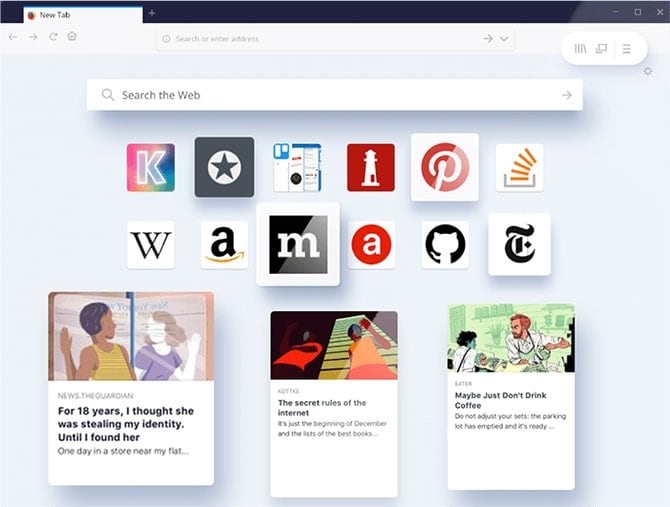
Firefox is another Best Browser For Linux. This is available for some main operating systems such as Linux, Windows, Androids, and macOS. This Linux browser features tabbed browsing, spelling check, private surfing on the internet, etc. Moreover, it widely supports XML, XHTML, HTML4, etc.
Resource Link: 10 Ways To Speed Up Firefox Browser in Linux Desktop
Install Firefox on Ubuntu Linux
sudo apt install firefox
Install Firefox Quantum on Ubuntu Linux
sudo add-apt-repository ppa:mozillateam/firefox-next sudo apt update sudo apt upgrade sudo apt install firefox
3. Midori
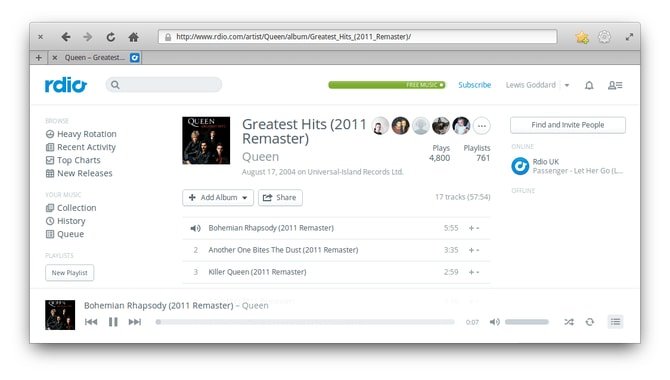
Midori is widely used as a default browser for many Linux distros, especially for lightweight Linux distributions. Its key features incorporate HTML5, Private browsing, speed dialing, and good management of tabs and sessions as well.
Install Midori using Snap
sudo snap install midori
4. Opera Web Browser for Linux
This established web browser has been written in C++. It supports Windows, Linux, MacOS, and Android phones. It widely includes maximum tabbed cycling, Speed- dial, Unlimited VPN service, and Ad block, as well as Opera Turbo for faster surfing. You can comfortably install this Ubuntu browser for convenient use.
Download Opera browser for Linux
5. Vivaldi
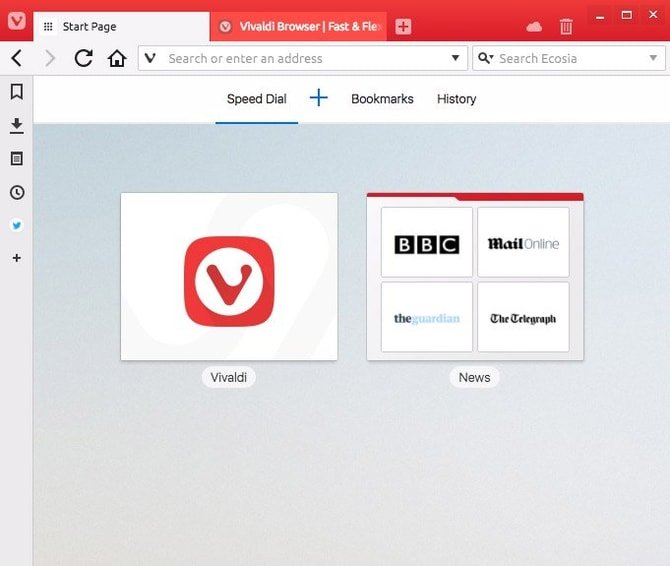
Vivaldi developers introduced this new browser to the modern world in 2016. The ultimate goal of this Linux web browser is to provide the fastest browsing experience, including modern features like quick commands, Nice tab management, etc.
The web developers use HTML5 and node.js in it. The Blink layout engine has been used here. It allows you to choose a theme and displays thumbnails for every site you are likely to operate.
Download Vivaldi for Ubuntu Linux
6. Falkon (Previously known as QupZilla)
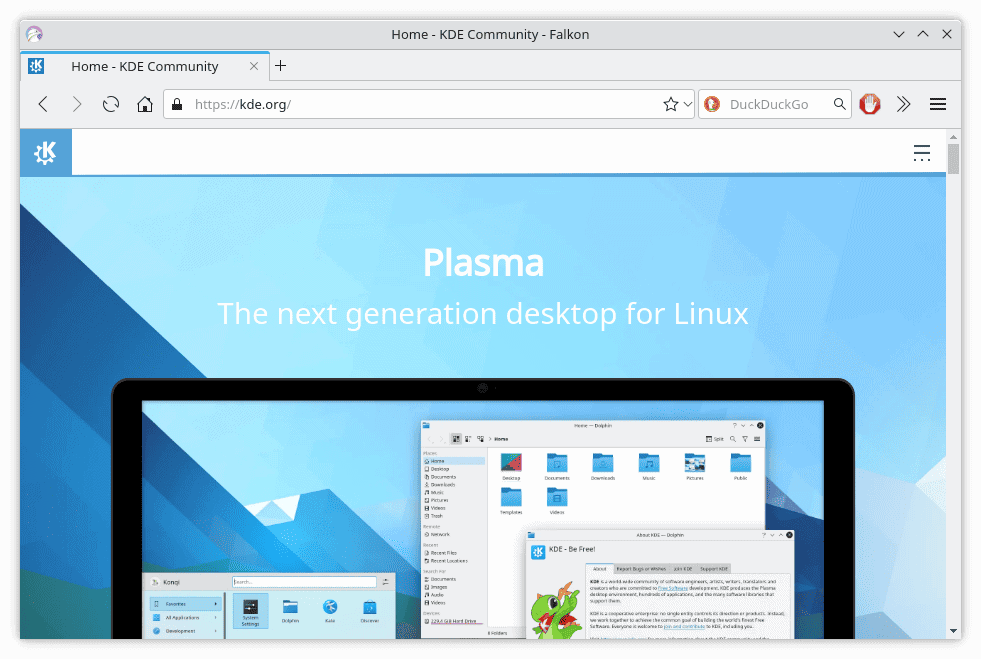
If you are looking for a browser that feels at ease with the KDE application, then Falkon (Previously known as QupZilla) should be the right choice for you. It initiated the Journey as a research project in 2010. The functions which are much needed to present in a modern web browser. This Qt-based browser shows a simple interface for users.
The most attractive feature is the user-friendly approach. Also, this lightweight Linux browser provides bookmark management, speed dial, add blocks, etc.
7. Brave Browser
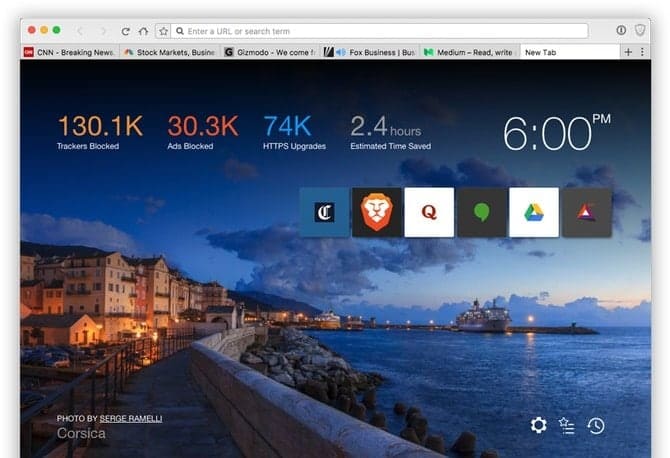
Mozilla co-founder Brendan Eich made this browser by using JavaScript, C, and C++ languages. The main goal is to concentrate on blocking trackers.
Resource Link: Brave vs. Chrome: Which One is the Best Browser?
Users can suitably operate it on Linux, Windows, MacOS, and Android. It provides faster website loading and makes you pleased with the ad-less browsing experience.
Download Brave for Ubuntu Linux
8. Pale Moon Browser
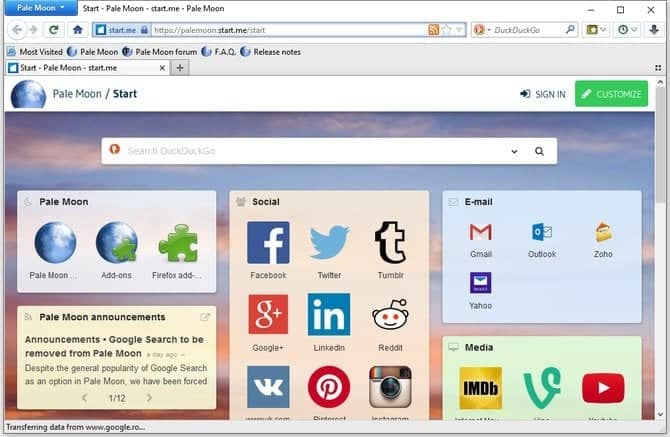
If you are tired of using your older browsers, Palemoon should be a great recommendation for you. This open-source browser mainly focuses on efficiency and compatibility with various Firefox extensions as well. Again, it offers excellent visual feedback with a powerful and manageable configuration.
Download Palemoon for Ubuntu Linux
9. SeaMonkey
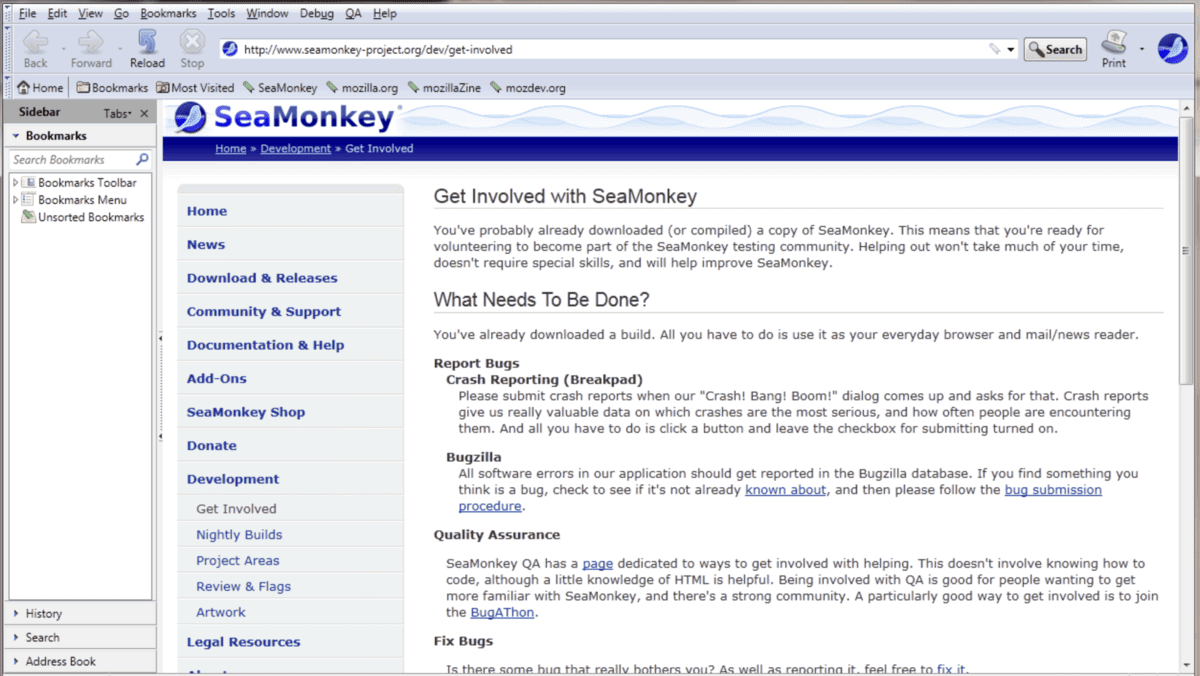
SeaMonkey was created mainly by the Mozilla codebase. It excels in its strategy in terms of technical growth and performance. The updated version, which uses the latest Mozilla code, offers great speed and compatibility. The user interface is neat and clean. The features have manageable large icons, and tab management and the email component are easy for users to handle.
Download SeaMonkey for Ubuntu Linux
10. Waterfox Web Browser
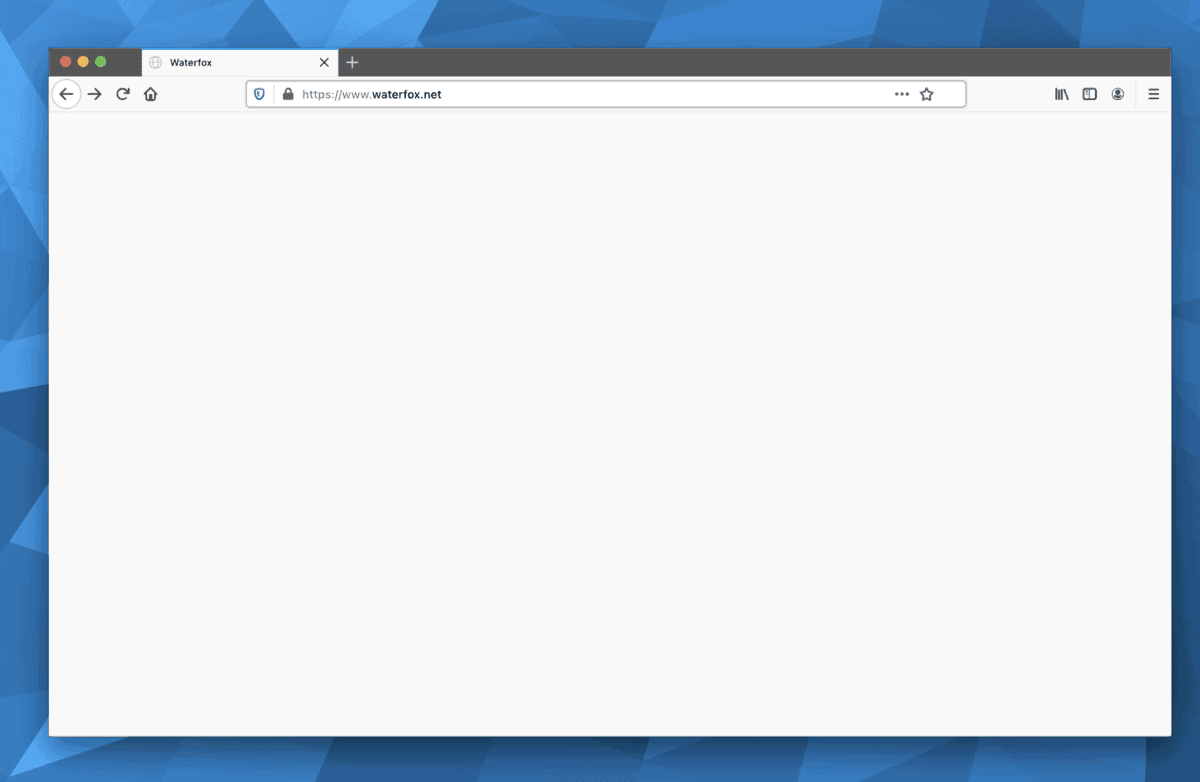
This web browser is based on Firefox, which supports Linux, Windows, MacOS, and Android. This open-source browser was developed in 2011 following the Mozilla Firefox Code. It is also available in XUL and XPCOM extensions. It secures privacy. Leading streaming services such as Netflix can be suitably used with Waterfox.
Download Waterfox for Ubuntu Linux
11. Web (Epiphany): Web Browsing Made Simple!

The GNOME community developed this simple but powerful Ubuntu browser, maintaining the standard assent. This lightweight Linux browser manages extreme simplicity by displaying a nice design and a faster user interface. This Webkit-based official web browser is easy to use and offers a wide range of effective features.
12. Tor Browser: Browse Privately
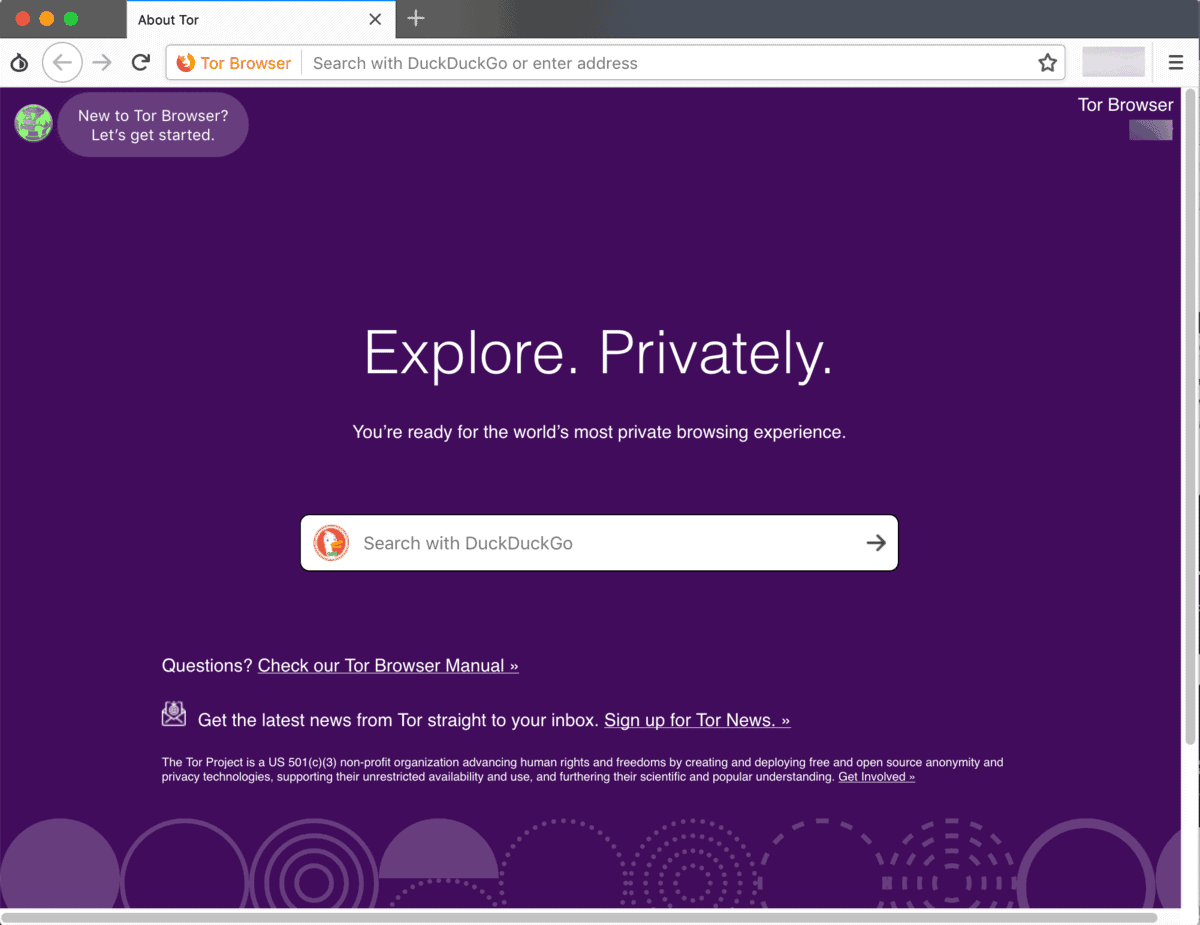
This is called the browser of hackers because of military-grade security. So, if you are serious about your privacy and don’t need any fancy features, this one can be your pick. The power of this browser is the onion routing. This is a technique for encrypted anonymous communications among computers.
The Tor Project is maintained by open-source contributors worldwide. It is built upon Mozilla’s Gecko rendering engine, so its features and functionalities are somewhat similar to those of the Firefox browser, with additional protection.
13. Microsoft Edge Browser
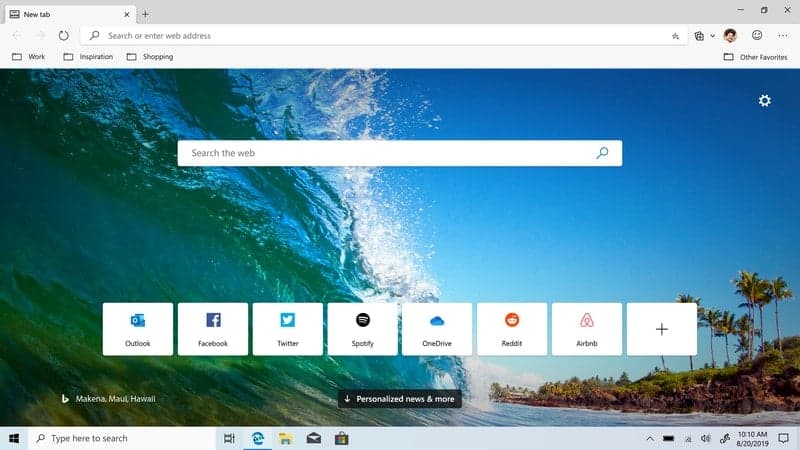
One of the biggest shame for Microsoft was their legacy Edge browser. It barely brought any improvements over the classic Internet Explorer. Hence, nobody lost the opportunity to mock this miserable browser. However, things have changed to a great extent. The all-new Edge is a powerful browser with the Chromium engine at the core.
Resource Link: Edge vs Chrome: Which Browser Is Best?
Besides, the Microsoft-level optimization for Windows OS made this a pleasure to use. It supports almost all the vanilla features of Google Chrome, along with some great legacy Edge features.
14. Iridium
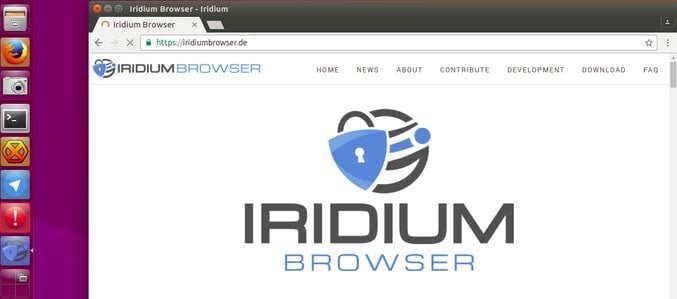
Iridium is the best privacy-focused web browser for Linux. This simple Ubuntu web browser is one of the best Linux browsers, very user-friendly and easy to operate. This Chromium-based browser handles complicated sites with speed.
15. Yandex browser
Yandex is the most standout Russian web browser. It offers the latest user interface and speedy browsing experience with Blink engine. This Chromium-based web browser provides extraordinary service in relation to quick page loading even with a poor internet connection. This browser is available for Linux, Windows, and iOS.
Download Yandex Browser for Linux
Final Thought
Here, we have come to the last stage of the web browsers for the Ubuntu Linux list. I truly hope and believe that the article will help you a lot to find out the best one for you. In this list, are you missing your favorite one? Please leave your valuable feedback regarding the article in the comment section. This will let me know about your experience through your suggestion.

If you are listing the various forks of Firefox in a ‘best of’ feature, why would leave out Librewolf. It addresses privacy concerns rlated to recent versions of Firefox and more importantly, it’s updated almost in real-time with Firefox. The forks in this list all have their own concerns regarding updates.
Brave Install
On Ubuntu 20.10, I have the following error : Warning: apt-key is deprecated. Manage keyring files in trusted.gpg.d instead (see apt-key(8)).
Here is one way to get around :
~$ wget -O- https://brave-browser-apt-release.s3.brave.com/brave-core.asc | gpg –dearmor | sudo tee /usr/share/keyrings/brave-archive-keyring.gpg
~$ echo “deb [arch=amd64 signed-by=/usr/share/keyrings/brave-archive-keyring.gpg] https://brave-browser-apt-release.s3.brave.com/ stable main” | sudo tee /etc/apt/sources.list.d/brave-browser-release.list
~$ sudo apt update
~$ sudo apt install brave-browser
Using Opera on Linux Fedora XFCE for 20+ years. Opera generates very large cache file over time which is emptied on reboot or Opera shut-down. XFCE and Opera perform all tasks I require VERY well and I am VERY satisfied with BOTH.
Finally!, Someone BOTHERS to include Waterfox!
There is Water fox Current and then there is the Waterfox Classic!
Waterfox Classic supports the Addons or Extensions Before the Addon Apocalypse AND MOST of the new addon extensions!
BTW “Firefox” is becoming just another “browser” that is going down the want-to-be another Google chrome…
Google and Microsoft are the worlds most prolific and successful$$$ “spy” operations.
ALMOST Any and every thing that has anything to do with google is full of tracking, spy, and ad ware!
MS “windows 10 is built to support the most in trying to spy on the user, working to a future of owning YOUR PC and computing experience and full of back door options to sneak into “your” PC any time THEY FEEL like it unless you totally disconnect from the internet and the outside world permanently and they will have it so in the future that “Windows” will not run IF you are not reporting “home” to MS as soon as you try to log on to “your” runs-MS-only PC!
correction for iridium install:
wget -qO – https://downloads.iridiumbrowser.de/ubuntu/iridium-release-sign-01.pub|sudo apt-key add –
cat <<EOF | sudo tee /etc/apt/sources.list.d/iridium-browser.list
deb [arch=amd64] https://downloads.iridiumbrowser.de/deb/ stable main
#deb-src https://downloads.iridiumbrowser.de/deb/ stable main
EOF
sudo apt-get update
sudo apt-get install iridium-browser
Epic privacy browser is very good but unfortunately unavailable on Ubuntu 19.10
I prefer opera, it’s fast
My vote goes with Firefox rest of the browser are good like Chrome, Opera. they are also perform good but i like most Firefox due to browsers quality article describe in a very lengthy manner.
Checkout suckless surf – if you want a hackable super lightweight thingy. Only for powerusers though.
Do not use chrome or chromium. I am a 20 year linux power user and these browsers are resource hogs that will crash your computer with all the damn crap they load up
It’s even worse that tons of desktop applications are now using electron.js.
so any suggestion br0 !! running 32 bit config on E machine 455 or some
There are lots of web browser for accessing but generally, we haven’t a proper idea which we have to choose. After reading your article I get some useful information.
To JRichard, Ricossa, David who support Slimjet, Opera, Yandex: you are standing completely naked in the middle of the biggest intersection onin the dead of winter, thinking nobody will notice.
To El Guahiro: compiling Luakit is a big pain
To Wendy: you’re right not to trust these trackers.
not a fan of chrome. it’s constant pop ups nagging for access to the passwords on my ubuntu laptop forced me to finally uninstall it. I don’t trust google with my keyring. hell no!
I use yandex for last 10 years. It used to be light and super fast.. Now it takes almost 1 gig of space to install it and it is an absolute crap.. Very, very slow is the main feature on both: windows and Ubuntu 18.
it is mostly dummy, unintelligent ( oh, well… it’s from russia, isn’t it?) and rules your computer passed decent tolerances.
Google Chrome and FireFox would definitely be on this list and also on every browser list. Opera can also be very useful. Wasn’t expecting Yandex to be preferred by so many users.
I am happy with Yandex. It has amazing features
Where is luakit?
Luakit is the fastest graphical browser.
You didn’t mention Slimjet. It is chromium based and has a lot of extra features.
slimjet dot com
Thank you for your Iridium overview. As a privacy-sensitive Web surfer, I now call browsers “trackers”, and while Chromium-based trackers – Chrome, Chromium, Slimjet, Vivaldi, Opera – have a great rep for rendering Web pages, they are among the worst privacy invaders. I’m grateful to you for unveiling a tracker as good as Iridium that’s as private as it gets. Here’s hoping it pans out.
erm why would you include opera in that list? Opera offers a built in vpn id say they are one of the few who probably are NOT tracking your ever move